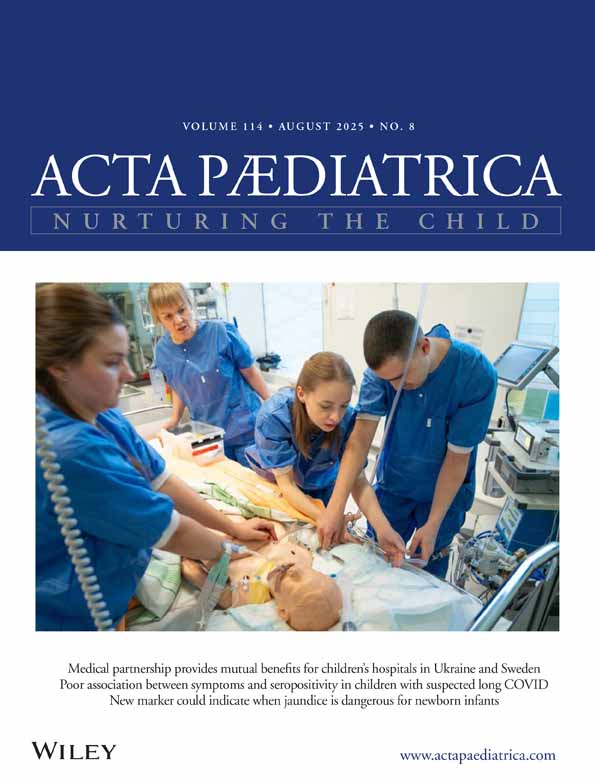Utilization of healthcare by very-low-birthweight infants during their first year of life
Abstract
New knowledge in perinatal medicine has resulted in increased survival of very-low-birthweight (VLBW) infants. After leaving hospital, the child is seen at regular medical check-ups, but there is often a persistent worry about the child which affects the family as a whole. This can lead to an increased utilization of healthcare. Our objective was therefore to describe the utilization of healthcare by VLBW infants during their first year of life and its relation to high-risk diagnoses in the neonatal period. The study group comprised 36 infants born at gestational ages of ≫31 wk and with a birthweight of ≫1500 g, and was compared with a control group of 36 full-term infants.
Utilization of healthcare by the VLBW infants was higher than that by the control group in paediatric and ophthalmic outpatient clinics. The total number of contacts with healthcare was on average 38.7 versus 17.4. High-risk diagnoses in the neonatal period did not correlate with utilization of care, except for visits to the paediatric outpatient clinic, especially planned visits. Further studies focusing on how to support these families after leaving hospital are therefore needed.




